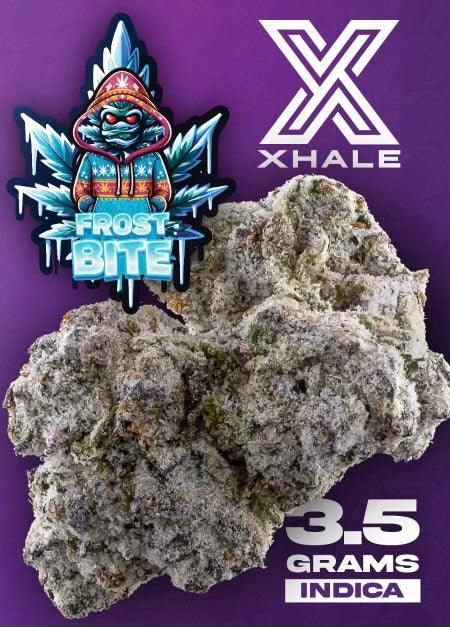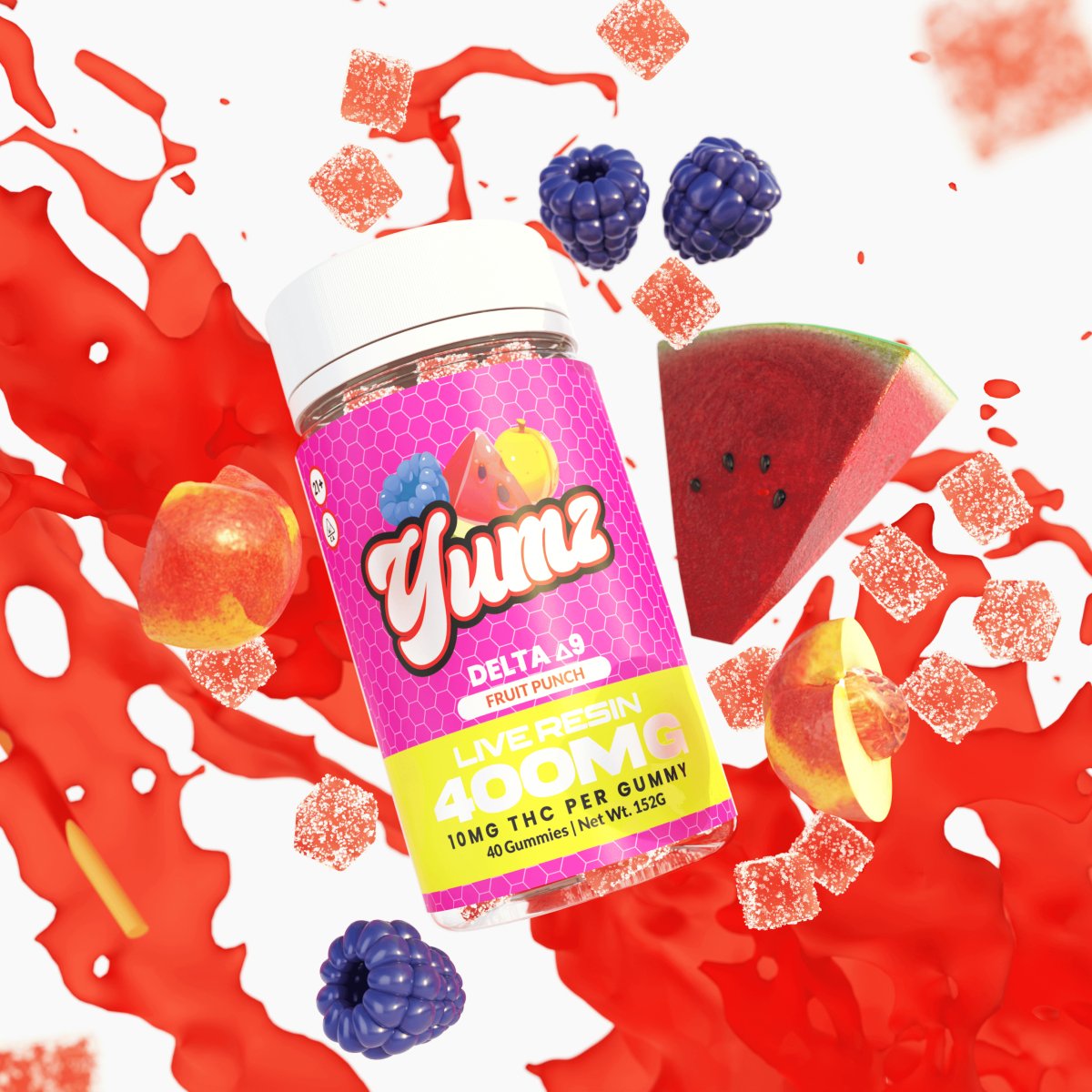
What is Delta-9 THC? A Comprehensive Guide
Introduction
Delta-9-tetrahydrocannabinol, commonly known as Delta-9 THC, is a compound that has intrigued scientists, medical professionals, and recreational users alike. It's the primary psychoactive ingredient in cannabis and is responsible for the "high" that users experience. But what exactly is Delta-9 THC, and how does it work? In this comprehensive guide, we'll delve into the science, effects, legality, and potential medical applications of this fascinating compound.
What is Delta-9 THC?
Delta-9 THC is one of the many cannabinoids found in the cannabis plant. Cannabinoids are chemical compounds that interact with the endocannabinoid system (ECS) in the human body. The ECS plays a crucial role in regulating various physiological and cognitive processes, including mood, appetite, and pain sensation.
Delta-9 THC is unique among cannabinoids because it is the primary psychoactive component of cannabis. In simpler terms, it's the compound that produces the "high" or altered state of consciousness associated with marijuana use.
Chemical Structure
Delta-9 THC has a molecular formula of C21H30O2 and is structurally similar to other cannabinoids like CBD (cannabidiol) and CBN (cannabinol). However, the arrangement of atoms in Delta-9 THC allows it to bind more effectively to the CB1 receptors in the brain, leading to its psychoactive effects.
Isomers and Analogs
Delta-9 THC has several isomers and analogs, such as Delta-8 THC, which have slightly different properties. These variations occur due to the different arrangements of atoms, but they generally have similar effects on the human body. However, Delta-9 THC remains the most potent and widely studied form.
How Does Delta-9 THC Work?
Delta-9 THC primarily interacts with the CB1 and CB2 receptors in the endocannabinoid system. The CB1 receptors are mainly found in the brain and central nervous system, while CB2 receptors are more prevalent in the immune system and peripheral tissues.
Mechanism of Action
When Delta-9 THC binds to the CB1 receptors, it triggers a series of biochemical reactions that lead to the release of neurotransmitters like dopamine. This results in feelings of euphoria, relaxation, and heightened sensory perception, among other effects.
Endocannabinoid System and Homeostasis
The endocannabinoid system plays a crucial role in maintaining homeostasis in the body. Delta-9 THC's interaction with this system can have both short-term and long-term effects on various physiological functions.
Effects of Delta-9 THC
Positive Effects
- Euphoria: One of the most well-known effects is a sense of happiness or euphoria.
- Pain Relief: Medical cannabis is often prescribed for chronic pain conditions, thanks in part to Delta-9 THC's analgesic properties.
- Appetite Stimulation: It can increase appetite, making it useful for conditions like anorexia or side effects from chemotherapy.
- Relaxation: Many users report feeling relaxed or at ease after consuming Delta-9 THC.
Negative Effects
- Anxiety and Paranoia: Some people may experience heightened anxiety or paranoia.
- Impaired Motor Skills: It can affect coordination and reaction time.
- Memory Impairment: Short-term memory can be affected during the period of intoxication.
- Dry Mouth and Eyes: These are common side effects and usually temporary.
Long-term Effects
Long-term use of Delta-9 THC can lead to tolerance, where higher doses are required to achieve the same effects. It can also result in withdrawal symptoms when usage is stopped. Some studies suggest that long-term use may have cognitive effects, although more research is needed.
Types of Edibles Featuring Delta-9 THC
Delta-9 THC is not just limited to smoking or vaping; it also comes in various edible forms that offer a different kind of experience. Edibles are a popular choice for those who prefer not to inhale cannabis smoke or vapor. Here are some common types:
-
Brownies and Cookies: These baked goods are perhaps the most iconic form of cannabis edibles. They offer a tasty and discreet way to consume Delta-9 THC.
-
Gummies and Candies: These are easy to dose and come in a variety of flavors, making them a popular choice for both beginners and experienced users. For the best delta 9 thc gummies make sure to check out Yumz Lab.
-
Beverages: From THC-infused sodas to teas, these drinks offer a unique way to consume cannabis.
-
Tinctures: These are liquid extracts that can be added to food or taken sublingually for faster absorption.
-
Capsules: For those who prefer a no-frills approach, Delta-9 THC capsules provide an easy and precise dosing method.
Each type of edible offers a unique experience, with effects typically lasting longer than smoking or vaping. However, it's crucial to start with a low dose, especially if you're new to edibles, as the effects can be potent and long-lasting.
Ongoing Research
Research into the medical applications of Delta-9 THC is ongoing, with clinical trials and studies continually being conducted. This research aims to understand the full range of its therapeutic potential and any associated risks.
Legality
The legality of Delta-9 THC varies by jurisdiction. In the United States, it is classified as a Schedule I controlled substance at the federal level, but many states have legalized it for medical and/or recreational use. Always check local laws before possessing or using Delta-9 THC.
International Laws
Internationally, the legality of Delta-9 THC varies widely. Some countries have strict anti-cannabis laws, while others have decriminalized or legalized it. Always be aware of the laws in your country or any country you plan to visit.
Conclusion
Delta-9 THC is a complex and multifaceted compound with a range of effects and potential medical applications. While it is best known for its psychoactive properties, ongoing research continues to uncover its therapeutic potential. However, it's essential to use it responsibly and be aware of its legal status in your jurisdiction.
Understanding Delta-9 THC is crucial for both recreational users and medical patients, as well as for policymakers who aim to regulate its use effectively. As science continues to explore this intriguing compound, we can expect to learn even more about its capabilities and limitations.
Disclaimer: The information provided in this article is for educational purposes only and should not be considered medical advice. Always consult with a healthcare provider for medical advice and treatment.



